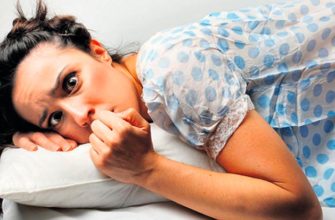The second trimester of pregnancy (period from 13 to 27 weeks) is the most interesting for the expectant mother. After all, it is at this stage that the baby begins to move. This period is usually accompanied by a sense of physiological comfort and well-being. Nausea at this time no longer appears, and the fetus has not yet reached the size in order to exert pressure on the organs of a woman. But still there are certain problems that arise during this period. Specialists give the woman the necessary and important tips that will help her cope with doubts and difficulties, look great and lead an active life.

1. What should be the nutrition?
Overeating a woman in the second trimester is not worth it. The uterus begins to intensively gain in size, so excessive filling of the stomach and intestines leads to unpleasant sensations. The ideal option is to eat fractionally, 5-6 times a day in small portions, and then there will be no problems with the digestion and assimilation of products.
Other features of the diet of the second trimester:
- Minimum amount of fatty foods;
- The basis of the menu is carbohydrates (pasta from durum cereals, vegetables, fruits, cereals) and proteins. Meat should be eaten in moderation;
- It is advisable to eat more fish than meat, and the latter should be lean, dietary;
- To prevent nutritional deficiencies and impaired development of the child from the 4th month should take special complexes of vitamins and minerals for pregnant women.
2. How much can I drink fluids?
According to studies, lack of fluid during pregnancy can lead to serious consequences. In addition to constipation and metabolic problems, water shortage can also become them. Therefore, everyone should drink clean water, even pregnant women suffering from edema, but in this case there should be no abuse. The rate of fluid intake is 1.5-2 liters / day, with edema - a little less, in the heat - more.
3. Does a woman need to change her lifestyle?
Usually all the worries about the new position of the woman are already behind toxicosis is over, the expectant mother begins to feel joy from her condition.It is very important in the second trimester not to restrict yourself in movement, not to close yourself at home while lying in bed. Moderate activity will benefit the heart and blood vessels, therefore, will help saturate the baby's blood with oxygen. Also, the movement is useful for the functions of the nervous, endocrine systems.
Physical inactivity has one drawback:
- Constipation
- Poor tone of the muscles of the uterus and abdomen;
- Metabolic disorders;
- Weight gain;
- Incorrect presentation of the fetus;
- Placental problems;
- Weak labor.
If the doctor does not mind, then a woman from the second trimester can visit the pool, for example, in special groups for expectant mothers.
We also read: TOP 8 sports for pregnant women
4. How to dress pregnant?
The stomach in the second trimester begins to grow, so skirts, trousers, dresses should not squeeze it, hamper it while moving and when sitting. Squeezing the abdomen can lead to a violation of the blood supply to the placenta, uterine hypertonicity, which is harmful to the baby. From this period it is advisable to buy special clothes for pregnant women from natural fabrics, soft and comfortable for the body.
5. Are there any hygiene features in the second trimester?

Daily hygiene should not be discussed: a shower should be taken every day, since human skin actively secretes all unnecessary substances with sweat and has respiratory and metabolic functions. During pregnancy, it is important to monitor the cleanliness of the whole body. Normally developing pregnancy - you can periodically visit the bathhouse and sauna, but only with a comfortable temperature, without abusing the steam room. Too high a temperature can provoke high blood pressure, miscarriage and premature birth. During a visit to the bath should be careful.
6. How to prevent stretch marks on the body?
Fundamentally affect the appearance of stretch marks (striae) on the skin of the expectant mother does not work, as they form or not only depending on the features of the skin and the size of the abdomen. With a sufficient density of the skin, even with a large fruit and a large belly, there will be no stretch marks, and with thin, delicate skin they will surely appear. Creams from stretch marks for expectant mothers can to some extent increase the elasticity of the skin and reduce the risk of large, large stretch marks, but creams can not completely prevent stretch marks.
Also, a woman needs to control her weight. The likelihood of stretch marks increases if the pregnant woman gains weight quickly. The skin does not have time to stretch, and as a result a large number of striae are formed not only on the stomach, but also on the hips, buttocks, chest.
7. How much weight can a woman gain during pregnancy?
Doctors "allow" ideally to gain a woman during pregnancy 10-13 kg of weight. In the first three months, body weight rises by 2 kg, then the weight rises by 1.5-2 kilos per month. The first trimester is characterized by a small gain in the fetus, while from the second trimester of gestation, the baby is growing steadily, like the uterus itself, the volume of amniotic fluid, fatty tissue. The total blood volume of a woman also increases, and all the numbers in addition add up to such a large increase in weight.
From 10-13 kg, an increase in adipose tissue normally accounts for up to 4 kg, not more. The consumption of fatty, high-calorie foods during pregnancy causes an increase in the proportion of adipose tissue, the development of obesity, which threatens problems for the baby. For the pregnant woman, obesity is also fraught with various troubles:
- Diabetes mellitus;
- Back pain / lower back, the development of osteochondrosis;
- Varicose veins;
- Arterial hypertension.
[sc name = ”rsa”]
8. How to keep weight under control?
When visiting a gynecologist, a woman is offered to familiarize herself with the tables with the norms for weight gain by month (or by week). The doctor will help to calculate the rate of increase in the presence of an initial weight deficit, in which case it is permissible to gain up to 14 kg. On the contrary, for those who were initially overweight, the increase should be limited to 7-8 kg. Too low increases are harmful to the health of the child, since without the adipose tissue of the mother he will not be able to fully develop (adipose tissue is necessary for the normal development of the baby)!
After the birth of a baby, women who have optimal gains should breast-feed best because there is an ideal hormonal background for milk production. Trying to lose weight during pregnancy is prohibited, because the baby will not receive the nutrients he needs. Weight control is important in order to prevent the development of latent edema. Therefore, you need to eat right, do not overeat, if necessary, use infusions of diuretic herbs, on the recommendation of a doctor, do fasting days.
9. Sex in the second trimester - is it possible?
It is difficult to refuse sex life for the entire period of pregnancy, and even this is not necessary. Only women with contraindications have restrictions on sex (for example, the threat of a miscarriage). In other cases, you can lead an intimate life throughout the pregnancy. Nevertheless, you need to be more careful in bed, not forgetting about the “interesting situation”.
As a rule, problems with sex can occur only by the third trimester, when the stomach is large. In the second trimester, the woman's libido rises due to the characteristics of the hormonal background. In addition, sex improves blood circulation in the uterus, which is useful for the development of the fetus.
10. Do I need special care for the mammary glands?
In the second trimester, the breast increases rapidly in size, preparing for the appearance of milk. In some women, colostrum appears periodically. Breast care should be regular and correct:
- Take a shower daily, washing your chest with warm water;
- Periodically practice a contrast shower to optimize blood supply to tissues;
- After washing, wipe the mammary glands with a massage glove or a hard towel (this will prepare the nipples for lactation, making them less sensitive, help prevent cracks).
You should also buy a bra in size, without trying to wear tight underwear on the grown chest. A good bra will not let your chest sag, and you need to wear it constantly.
11. What to do with teats that are retracted or flat?
Some women naturally have flat or inverted nipples, which will greatly interfere with the feeding of the baby. The child alone will not be able to capture the nipple, so the mother is forced to feed him from the bottle. But even with flat nipples, you can straighten them a little if you start classes before delivery.

Exercises must be carried out several times a day, starting from the second trimester. After washing, they must be carefully pulled out and scrolled between the thumb and forefinger. These exercises are done in the absence of the threat of interruption.
There is a connection between the breast and the uterus, and excessive irritation of the nipples can lead to uterine contractions. Therefore, if the uterus often comes in tone, it is better to postpone the exercise until a later date.
We also read: How to prepare the breast for breastfeeding (flat or inverted nipples)
12. When do I need to visit a gynecologist?
During pregnancy, visits to the gynecologist are mandatory, they can not be missed. The second trimester is the time of not too frequent visits to the doctor, usually once every 3 weeks (if there are no pathologies). From the middle of the second trimester to a visit to the gynecologist, a woman submits a general urine test for the timely detection of deviations from the kidneys and the diagnosis of gestosis. In the period of 21-24 weeks, an ultrasound of the fetus is done, and in 16 weeks - second screening for intrauterine pathology.
13. What problems can occur in the 2nd trimester?
Unpleasant sensations can appear in a woman not only in connection with toxicosis of the first trimester. Since the work of all organs changes, they are compressed by the grown uterus, a number of unpleasant sensations are possible. Most often it is - heartburn, sometimes - pain in the stomach, increased gas formation. In order to prevent such troubles, it is important to eat properly, do not abuse baking, salt, spices. It is better to sleep on a high pillow, and after eating at least 2 hours should pass before bedtime.
Among other things, in many women by the end of the second trimester are observed:
- Headaches;
- Lower back pain;
- Constipation
- Thrush;
- Anemia.
Many pregnant women at this period first experience cramps in the calf muscles. When they appear, you need to see a doctor and he will recommend taking calcium and magnesium preparations, since many unpleasant symptoms appear due to their lack.
14. Anemia during pregnancy - how to treat?
Most often, anemia occurs due to an increase in plasma volume. There is an increase in the amount of the liquid component of the blood, and the number of red blood cells and hemoglobin remains the same. But sometimes real anemia occurs due to malnutrition, malabsorption of iron in the intestines or frequent bleeding (threatened interruption, hemorrhoidal bleeding).
If hemoglobin decreases sharply, then the fetus will suffer from hypoxia. The diagnosis is made by a blood test. Be sure to prescribe preparations containing iron. Prevention of anemia is the intake of vitamins for pregnant women, which contain iron, and a balanced diet.
15. Thrush and how to deal with it?
By the end of the second trimester, thrush (candidiasis) occurs in a huge number of pregnant women. It directly depends on the state of immunity, and in a woman it is greatly reduced so that the body does not “decide” to reject a foreign body - the fetus. Decreased immunity is fertile ground for the active reproduction of Candida fungi, which provoke an inflammatory disease. Another factor that increases the risk of thrush is a change in hormonal levels, which affects the change in pH in the genitals.
Candidiasis treatment is a complex process, and the trouble is that there are no effective drugs that can be used during pregnancy. And it is necessary to treat it, even if it does not proceed without symptoms. It is especially important to get rid of thrush before childbirth, because the baby, when passing through the birth canal, can be infected with pathogenic fungi. All drugs are prescribed only by a doctor, and it is better not to use a future mother’s folk remedies!
16. What is the cause of constipation and how to get rid of them?
It seems that the uterus is still small and does not exert much pressure on the intestines. But many pregnant women already have constipation in the second trimester. They arise due to progesterone, which has a relaxing effect on muscle tissue.
This effect is needed to prevent uterine contractions, but progesterone affects not only the uterus, but also other organs, in particular the intestines. Therefore, there is a decrease in intestinal tone and a slowdown in its peristalsis.
It is imperative to deal with symptoms of digestive disorders and poor stool discharge. For starters, active prophylaxis of constipation should be used - eat fresh vegetables, fruits, cook porridge, drink more water. But in the absence of a result, it is better to use not drugs, but harmless candles with glycerin. In severe cases, the doctor will prescribe drugs that are the least dangerous for a pregnant woman.
17. Are there any situations when you need to urgently run to the doctor?
Usually in the second trimester, the least number of problems with the development of pregnancy are diagnosed. The woman’s body has “mastered”, she is feeling fine, the child is growing and developing. Nevertheless, situations when pregnancy is accompanied by complications are not uncommon. Urgently consult a specialist, including - call an ambulance, it is necessary in such cases:
- Pain in the abdomen, especially in the type of contractions;
- The appearance of secretions with blood;
- Amniotic fluid effusion;
- Unexpected increase in body temperature;
- Severe cramps, sharp pain in any part of the body.
It is strictly forbidden to wait with any acute symptoms! Only timely recourse to help will help to maintain health - your and your unborn child!
We also read:TOP 5 important tips for a pregnant woman: second trimester









My baby is soon two years old, I remember the second trimester well. There were both first joys and first problems. Of course the child stirred - indescribable sensations. It was during this period that I wanted to eat a lot and eat sweets, hence the extra 10 kg after childbirth. Gestational diabetes was discovered at the end of the second trimester, so I was on a diet and checked my sugar level three times a day. There were no more problems.
From my own experience I will say that constipation most often occurs and for a particular write, for example meat, wheat products, astringent fruits and berries. If you limit the intake of specific food, then there will be no constipation.
Lower back pain is really a problem, I sat on the sofa and put a small pillow under my back, but all this is temporary difficulties. And as for constipation - I had no problems, I tried to eat varied, more sour milk, and not lean on sweets.